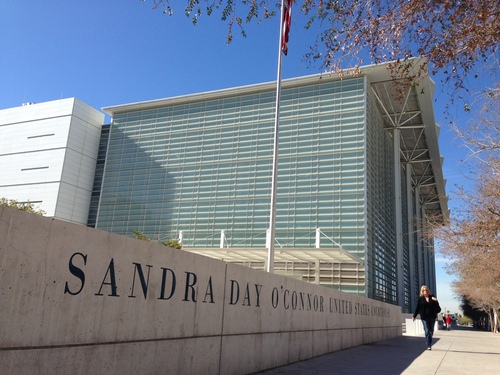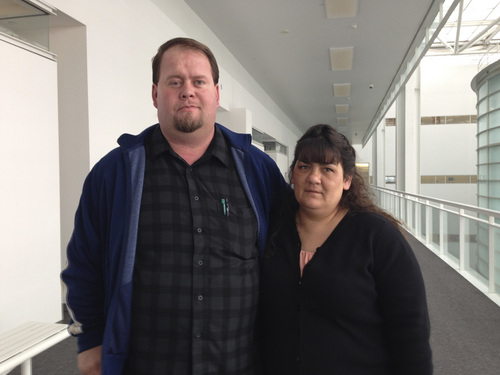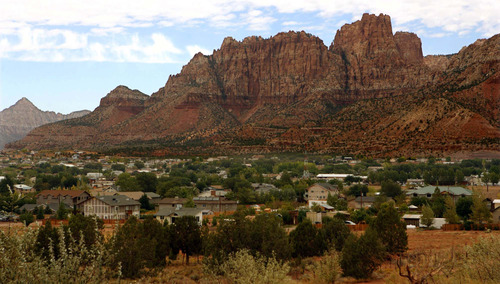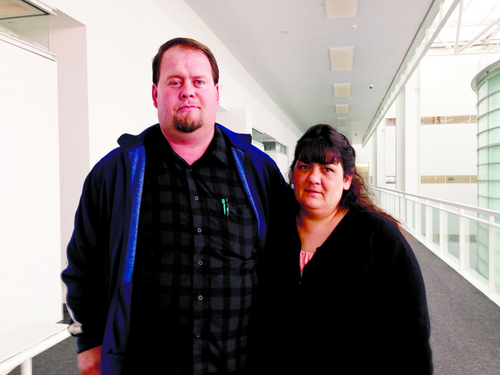This is an archived article that was published on sltrib.com in 2014, and information in the article may be outdated. It is provided only for personal research purposes and may not be reprinted.
The couple who earlier this year won a $5.2 million judgment from polygamous towns on the Utah-Arizona line have settled their lawsuit.
Documents filed Tuesday in federal court in Phoenix said Ron and Jinjer Cooke have dismissed all claims against Hildale, Utah, Colorado City, Ariz., and the utility companies incorporated in the twin towns. Financial terms of the settlement were not included in the court filings, and lawyers for the Cookes and Colorado City said Tuesday the terms were confidential.
Utah and Arizona record laws, however, may require that the terms be disclosed.
It's unlikely the Cookes received all of the $5.2 million, but the couple avoid appeals from the towns and utility companies that could have significantly trimmed or even overturned the jury award.
"We're happy to have resolved our claims with the Cookes," said attorney Jeffrey Matura, who represents Colorado City. "Hopefully everyone can kind of move forward."
The attorney for the Cookes, Bill Walker, said two elements of the lawsuit remain: The Arizona attorney general is still asking the court to impose changes in the towns, including disbanding the police force there; and the Cookes can resume the case if they suffer any retaliation or harassment as a result of the verdict or settlement.
"My clients are extremely happy," Walker said, "because they now have water and electricity and sewer and have gotten just compensation for the injuries they suffered over 5½ years."
Hildale and Colorado City are home to the Fundamentalist Church of Jesus Christ of Latter-Day Saints. Ron Cooke suffered a work accident that left him disabled, and the couple moved to Colorado City in 2008. They took residence in an unfinished home belonging to the United Effort Plan, the trust run by the state of Utah that controls much of the property in Hildale and Colorado City.
Colorado City officials refused to link the Cookes' home to the municipal utilities. The town eventually connected electricity and sewer, but refused to hook up the water.
The Cookes filed a federal lawsuit in 2010, accusing the towns and utility companies of religious discrimination. At trial earlier this year, attorneys representing Colorado City and Hildale argued the Cookes failed to comply with the procedures for a connection, that there was a water shortage and that the Cookes' suit was orchestrated by UEP fiduciary Bruce Wisan.
The plaintiffs called to the witness stand former FLDS security personnel who testified how they were trained to use a network of surveillance cameras, on and off public property, to monitor the Cookes and other outsiders, and how the Cookes were subjected to harassment.
But the most heart-wrenching testimony may have come from Jinjer Cooke. She told the jury about the hardships of carrying in water — and hauling out sewage — and caring for her disabled husband and their three children.
About a month after the jury verdict, Colorado City hooked up water to the Cookes' home.
The lawsuit may cost Hildale and Colorado City in other ways.
The Utah attorney general has joined his Arizona counterpart in asking the trial judge to disband the Hildale and Colorado City marshals. In addition, any of the Cookes' claims and evidence have been included in a lawsuit the U.S. Department of Justice filed against the towns in 2012. That lawsuit, which remains pending, primarily addresses the police force in the towns.
Twitter: @natearlisle









